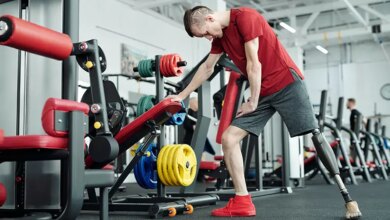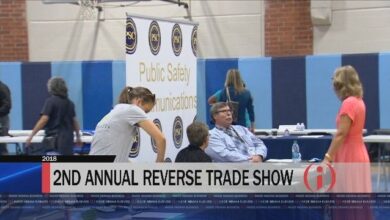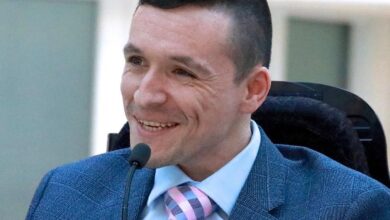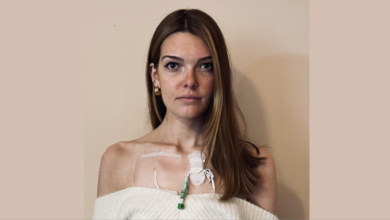‘Angel’ investor seeks entrepreneurs to transform life for disabled people – Disability News Service
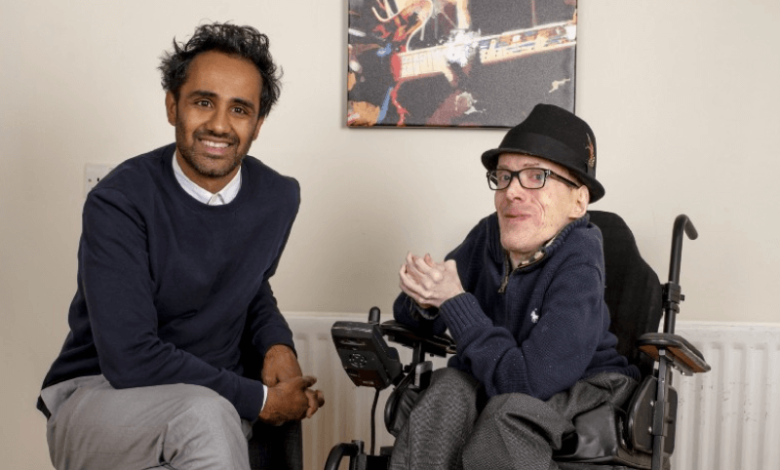
Disabled entrepreneurs with technology-based business ideas that could transform life for other disabled people have a chance to secure up to £100,000 of funding through an “angel” investment programme.
Entrepreneur
and investor Rohan Silva, a former senior policy adviser to Conservative
prime minister David Cameron, is one of 12 successful entrepreneurs who have
each been handed £100,000 by technology investment
fund Atomico to invest in early-stage technology companies.
After
discussions with disabled journalist Steve O’Hear, Silva decided to invest all the
money he has been given in one or two technology
start-ups with the potential to improve the lives of disabled people.
Silva (pictured, left), co-founder of Second Home, a social business that supports job creation and entrepreneurship, is particularly keen to see ideas from tech start-ups founded or co-founded by disabled people*.
O’Hear (right), a technology and business journalist who reports on tech start-ups for the website TechCrunch, will act as a volunteer “sounding board” for Silva.
He said that
Silva’s idea to focus on disability “had come partly from conversations he and
I have had in the past around the lack of diversity in the tech industry,
including disability, and the stink I’d made with regards to [chancellor]
Philip Hammond’s idiotic comments attempting to link the UK’s low productivity with high rates
of employment of disabled people”.
He said: “I immediately
thought that angel investing in disabled entrepreneurs was a good idea but told
him that if he wanted to have more impact he should also consider businesses
that explicitly target the disabled consumer, since disabled people are being
ripped off on a whole range of products or services.”
The
start-ups could, for example, offer a mobile app, other types of software, a
tech-enabled service or new types of hardware.
O’Hear said:
“My investment thesis was that unlike other sectors, tech hasn’t yet delivered
the same level of service, convenience and innovation to the disabled consumer
that we see more generally, and that there are many disability markets ripe for
disruption.”
He added:
“From insurance, financing, travel and accommodation, to specialist
products such as wheelchair accessories, disabled clothing and fashion, or
mobility devices, there are countless disability markets which feel dominated
by legacy players that don’t utilise tech very well or are outright
monopolies or predatory in nature.
“Depending
on how big the market is for any one product or service, broadly speaking this
is exactly the type of opportunity smart investors look for.”
He said that
many disabled people have the “instincts, aptitude and life experience to make
great entrepreneurs” because they are often “driven by having something to
prove”.
And he said
he was particularly interested in businesses that would help disabled people
“level up” in their personal or work lives, by saving money, using their time
more efficiently, or achieving greater independence and autonomy.
He said: “So
much of my time and money is wasted on being disabled, which, when you think
about it, is a collective waste of society’s resources.
“Disabled
people have so much to contribute as a whole, both in spending power and
through what we are capable of achieving via individual endeavours, but this is
being siphoned off by companies delivering poor consumer experiences whilst
ripping off the disabled consumer wholesale.”
O’Hear said there
are usually huge mark-ups on products that target disabled consumers, who can
expect to pay up to 10 times the price, “with no direct correlation to the
cost of providing those products or services”.
He said he
wanted to see applications for funding from start-ups that want to fix some of
these “broken markets”, in areas such as disability insurance or personalised
wheelchair accessories.
He said: “I
recently bought a new adapted vehicle and had to find new car insurance and the
experience took me back to 2003, which was the last time I bought a car.
“Literally
nothing had changed and it felt incredibly uncompetitive and lacking in
choice.”
*To submit a pitch deck – a
power-point presentation describing the business idea and plan – to Rohan
Silva, email him at [email protected]
A note from the editor:
Please consider making a voluntary financial contribution to support the work of DNS and allow it to continue producing independent, carefully-researched news stories that focus on the lives and rights of disabled people and their user-led organisations.
Please do not contribute if you cannot afford to do so, and please note that DNS is not a charity. It is run and owned by disabled journalist John Pring and has been from its launch in April 2009.
Thank you for anything you can do to support the work of DNS…

